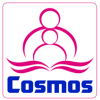Research Article
Aim & Scope
Journal of International Economic and Administrative Studies is a peer-reviewed international academic journal which is published by online and twice a year with the official support of Tokat Gaziosmanpasa University Faculty of Economics and Business Administration. The aim of the journal is to be one of the important publication platforms both national and international for the academic studies which are in the fields of economics and business administration.
In this scope, the journal welcomes scholarly work in economics, business administration, public management, finance, political sciences and international relations, and labour economics and industrial relations. The journal publishes original articles based on empirical or theoretical studies, including both quantitative and qualitative research. The journal language is Turkish and English.
Author Guidelines
2. Derginin tüm işleyiş süreci “online makale sunum sistemi” üzerinden yapılmaktadır. Dergi ile ilgili her türlü işlem, Dergipark üzerinden online makale sunum sistemine giriş yapılarak gerçekleştirilmektedir.
3. Makaleler İngilizce veya Türkçe dillerinde yayına sunulabilir.
4. Yayına gönderilecek makaleler başka bir yerde hakem değerlendirme, yayına kabul sürecine girmiş veya yayınlanmış olmamalıdır.
5. Yazım kurallarına uygun makalelerin değerlendirme sürecine alınıp-alınmayacağına dergi editörü karar verir. Değerlendirme sürecine alınan makaleler çift kör hakemlik sistemine tabi tutulmaktadır. Tüm makaleler değerlendirme sürecinde alanında uzman iki hakeme gönderilir, hakem raporlarına göre üçüncü bir hakem değerlendirmesi istenebilir veya editör nihai kararı verebilir.
6. Türkçe makalenin ilk sayfasında Türkçe ve İngilizce başlıklar, 200-250 kelimeden oluşan Türkçe ve İngilizce özetler, en fazla beş adet Türkçe ve İngilizce anahtar kelimeler, JEL sınıflandırması bulunan çalışmalar için JEL Kodları olmalıdır. İngilizce makalelerde, başlık ve özet dışında Türkçe bilgiler yer almaz.
7. Yazar adları makale başlığının altına 10 punto ile sağa yaslı şekilde yazılmalıdır. Yazarların kurum bilgileri, e-mailleri dipnot kısmına iki yana yaslı şekilde 9 punto ile yazılmalıdır.
8. Gönderilen makaleler A4 ebadında, sol, sağ, alt ve üst kenarlarından 2 cm boşluk bırakılarak, Ebrima, 10 punto, 1,15 satır aralığıyla, kaynakça ve ekler hariç 20 sayfayı aşmayacak şekilde olmalıdır. Sayfalar numaralandırılmalıdır.
9. Tüm birinci ve ikinci derece başlıklar 11 punto, kalın; üçüncü derece alt başlıklar 10 punto, kalın, iki yana yaslı (girintisiz) ve ilk harfleri büyük biçimde yazılmalıdır.
10. Çalışma içinde yer alan tablo başlıkları ilk harfleri büyük, ortalı ve üstte yer alacak biçimde, “Tablo 1, Tablo 2. Tablo 3, …” biçiminde sıra numarası verilerek; şekil, grafik ve harita başlıkları ilk harfleri büyük, ortalı ve altta yer alacak biçimde, “Şekil 1, Şekil 2, Şekil 3, …” biçiminde sıra numarası verilerek ve hemen altlarına ilk harfleri büyük kaynakça gösterilerek yazılmadır.
11. Dipnotlar, kaynak gösteriminin dışında kalan ve makalenin konusuyla ilgili açıklamalarda, üst simgeyle numaralandırılarak 9 punto ile iki yana yaslı olarak yazılmalıdır.
12. Matematiksel/istatistiksel simgeler Microsoft Office denklem düzenleyicisi ile hazırlanmalıdır.
13. Makalenin sonunda yazar soyadlarına göre alfabetik olarak düzenlenecek kaynakça kısmı bulunmalıdır. Kaynakçada sadece makalede kullanılan eserler yer almalı ve kaynakça aşağıda belirtilen örneklere uygun olarak hazırlanmalıdır.
Ethical Principles and Publication Policy
Price Policy
Journal of International Economic and Administrative Studies does not pay for articles.
Indexes
Other Indexes
Journal Boards
Editor in Chief

Editors

Editorial Board
Advisory Board
Field Editors
Foreign Language Editor
Publications Editor
Redaction and Secretary
Content of this journal is licensed under a Creative Commons Attribution NonCommercial 4.0 International License




